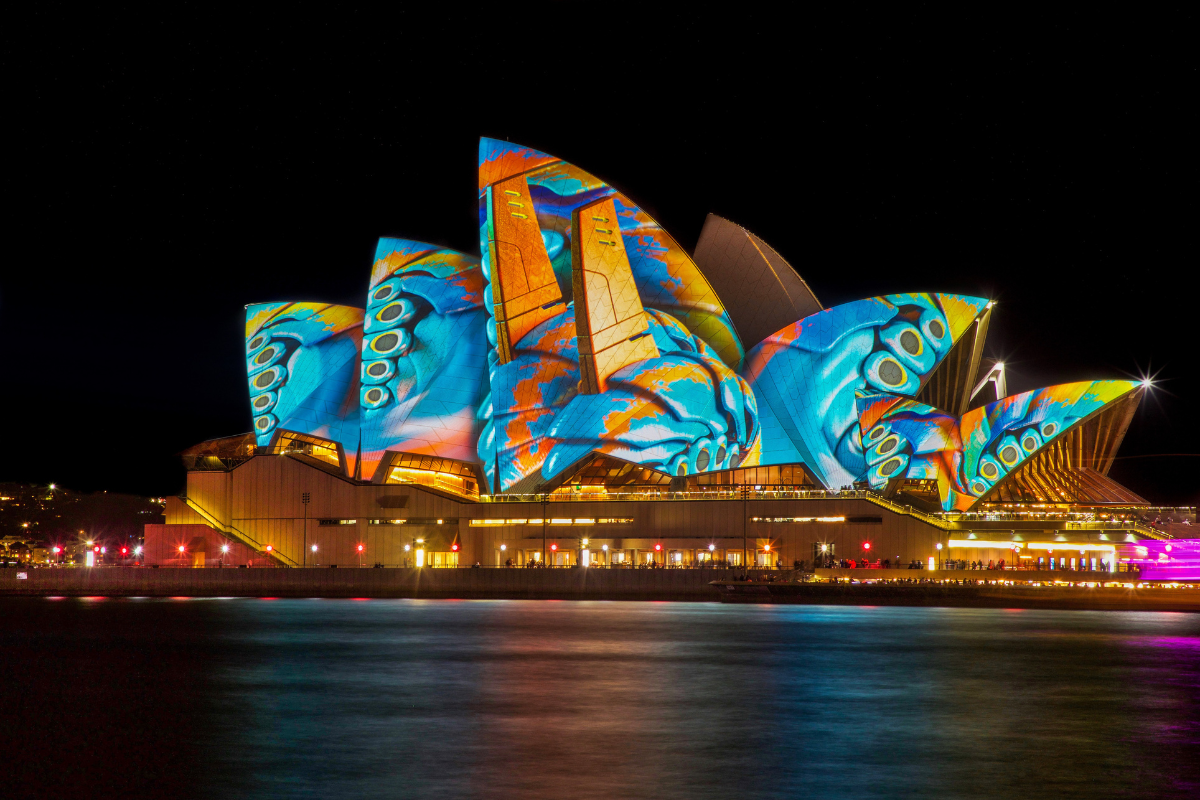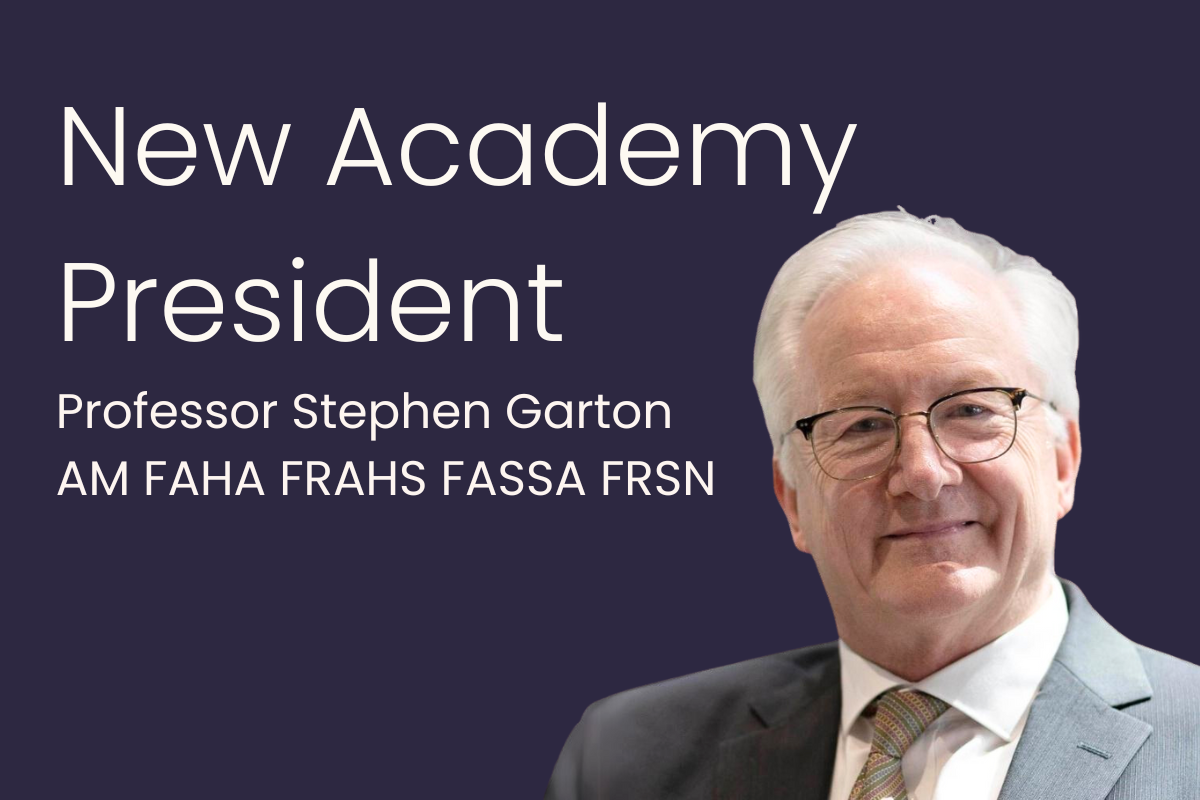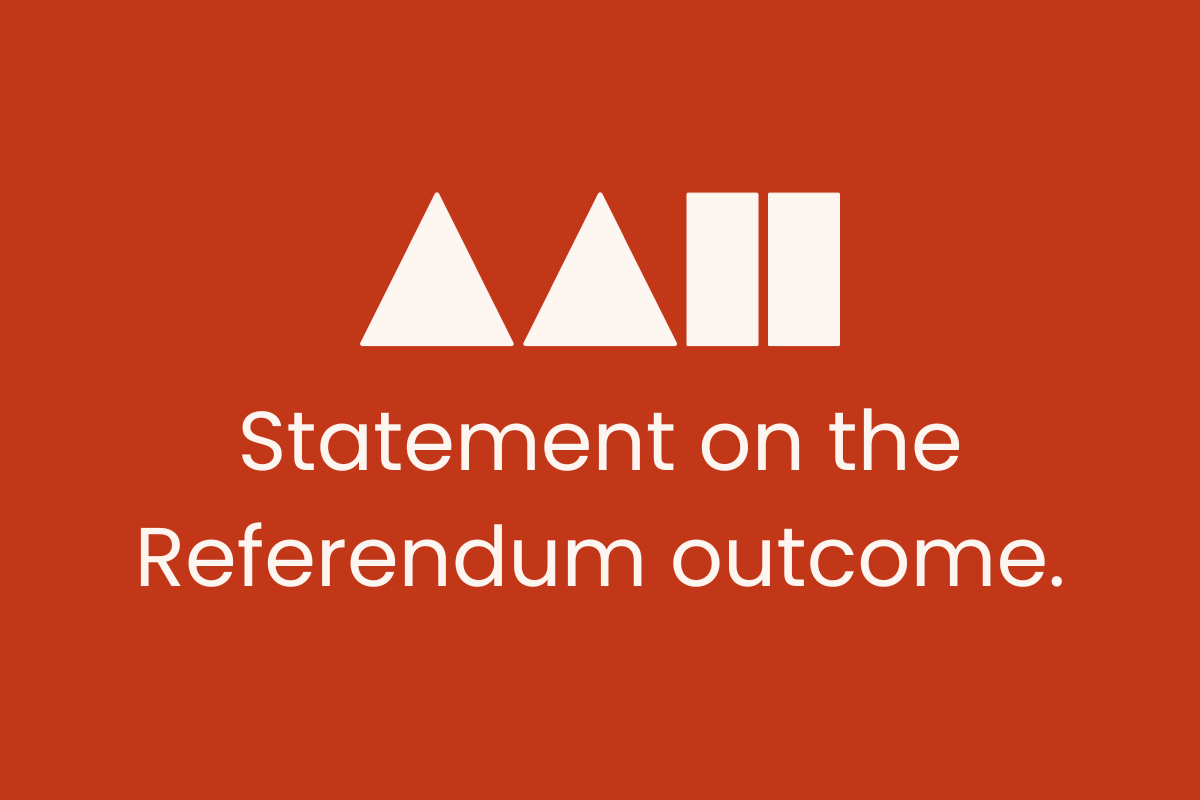A diverse humanities community
“I am honoured to welcome our new Fellows to the Academy, elected in recognition of their distinguished achievement in the humanities and arts disciplines and for their outstanding contribution to Australian cultural life,” said Academy President Professor Lesley Head FASSA FAHA following today’s Annual General Meeting.
Twenty-five Fellows were elected today. These distinguished professionals reflect Australia’s diverse learned humanities community and are recognised for their outstanding contributions in a broad range of fields ranging from bioethics and the philosophy of medicine to Indigenous Australian and Pacific languages and cultures; the Chinese justice system, digital media technologies, music performance and education, Islam and interfaith relations; feminism, and literary studies.
‘‘The broad-ranging research fields and areas of contribution by the newly elected Fellows showcase the depth and diversity of the humanities in Australia, and celebrate the ability of the humanities to educate, guide, inform and shape vital areas of cultural, social and environmental thought, policy and planning,” said Professor Head.
Five international researchers with close and enduring links to Australia were elected as Corresponding Fellows.
In addition, the Academy elected 10 Honorary Fellows. These remarkable cultural and creative leaders are honoured for their outstanding contribution to Australian cultural life. The group includes philanthropists, cultural leaders, creative practitioners, and activists.
2021 Fellows
Timothy Bayne – Philosophy, nature of consciousness, unity of consciousness, neuroscience of consciousness: Monash University
Jean Burgess – Social and cultural transformations associated with digital media technologies, ideological and political debates associated with social media platforms, and their transformative impacts: Queensland University of Technology
Heather Burke – Historical archaeologist; material expression of class and status, cross-cultural engagement, links between cultural heritage, memory and contemporary social identity; ‘frontier’ conflict and reconciliation and Aboriginal heritage: Flinders University
Richard Cosgrove – Archaeologist; early Aboriginal adaptations to the tropics, Tasmanian and Victorian landscapes; mobility, seasonality, diet and lithic technologies of Pleistocene groups: La Trobe University
Louise D’Arcens – Medieval women’s writing and medievalism; feminism, colonialism, globalisation, the history of emotions, humour studies, Asian studies and Australian literature; medieval political writing, postmedieval literature and culture: Macquarie University
Jane Davidson – Music performance, music psychology and music education; stage director; body-movement in expressive music performance, the history of perception and expression of emotions in music, and the impact of group singing on wellbeing: University of Melbourne
Gloria Davies – Interpreter of the contemporary Chinese intellectual scene; appropriation of terms drawn from Western critical theory; pre-modern notions of self-cultivation and patriotism; the ongoing impact of Marxist formulations: Monash University
Susan Dodds – Bioethics and moral and political philosophy; humanities, social sciences, natural and life sciences; feminist methodologies and insights: La Trobe University
Trevor Evans – Ancient languages; linguist and methodological innovator of ancient cultures: Macquarie University
Lisa Ford – Imperial legal culture and practices of colonial governance across the British Empire; settler colonial authorities; everyday operations of jurisdiction and settler sovereignty: University of New South Wales
Robert Freestone – History of urban planning theory; broader built environment history including heritage issues and the emergence of new urban forms, metropolitan governance, infrastructure provision, urban design and pedagogy: University of New South Wales
Julie Gough – Trawlwoolway artist, writer and curator; visual arts; Australian histories and art histories, particularly those that concern Tasmanian Aboriginal people; decolonial project of reclaiming and correcting the historical narrative: Tasmanian Museum and Art Gallery
Purnendra Jain – Japanese Studies; subnational politics and governance in Japan and its interface with national government; native-language interviews with local leaders, business associations and non-party organisations to establish roles in connecting localities to cross-border communities: University of Adelaide
Stewart King – Spanish and Catalan literary studies; highbrow and popular fiction genres, most notably crime fiction; world crime fiction: Monash University
Shino Konishi – Yawuru Indigenous historian, histories of cross-cultural encounters in eighteenth- and nineteenth-century Australia; French exploration in Australia and the Pacific, and their interactions with, and representations of, Aboriginal people: Australian Catholic University and University of Western Australia
Michael McDonnell – Chronologies, geography and national framings of Early American history, American Revolution and Native American history: University of Sydney
Julian Millie – Indonesian Studies; Islam in Indonesia; anthropological and language-based analysis; Indonesian and Malay textual studies, Sundanese and Arabic, how popular religion operates: Monash University
Cassandra Pybus – North American and Australian colonial and transnational history; colonial cultures of racism and national intellectual controversies; modern racial diasporas and communal confrontations.
Peter Riddell – Islam in Southeast Asia, Qur’anic commentary, interfaith relations; Malay commentary on the Qur’an; vernacularisation of Islam in the Malay-Indonesian world; historical development of Qur’anic commentary: Australian College of Theology
Wendy Rogers – Practical bioethics and moral philosophy; ethics of vulnerability; feminist ethics and bioethics; philosophy of medicine: Macquarie University
Nick Thieberger – Digital humanities research on Indigenous Australian and Pacific languages and cultures; South Efate language of Vanuatu; PARADISEC archive for endangered languages and cultures: University of Melbourne
Catherine Travis – Hispanic linguistics; Spanish-English bilingualism and New World varieties of Spanish; Australian English; community bilingualism: Australian National University
Sue Trevaskes – Chinese criminal justice; Chinese justice system; sentencing practices, the death penalty and their social and judicial contexts; governments and human rights organisations: Griffith University
Frederik Vervaet – Ancient History; Roman historian, specialising in socio-political history and public law: University of Melbourne and visiting Fellow at Clare Hall, Cambridge in 2021
James Walker – Sociolinguist and variationist; language and language change; ethnolectal variation in urban settings in Canada, Sweden, and Australia: La Trobe University
2021 Corresponding Fellows
John Broome – Moral philosophy; normativity, rationality and reasoning; the ethics of climate change: University of Oxford
Adam Clulow – Early modern Asia; transnational circulation of ideas, people, practices and commodities across east and southeast Asia; Dutch East India Company in Asia; Japanese diaspora in Southeast Asia, early modern legal frameworks: University of Texas, USA
Jemina Napier – Linguistics; Sign Language Interpreting practice, pedagogy and research; sign language and intercultural communication: Heriot-Watt University, UK
John Schofield – Archaeology and heritage studies: University of York, UK
Glenn Summerhayes – Papua New Guinean and Melanesian archaeology; Pacific archaeology; archaeological science techniques aimed at elucidating patterns of trade and exchange: Australian National University
2021 Honorary Fellows
Richard Bell – Artist; Indigenous rights activist
Behrouz Boochani – Kurdish-Iranian writer, journalist, scholar, film-maker, and activist
Alison Broinowski – Asian affairs and cultural and political issues
Wesley Enoch – Indigenous Chair in Creative Industries at QUT
Rupert Myer – Philanthropist, arts and humanities advocate
Craig Ritchie – Chief Executive Officer at the Australian Institute of Aboriginal and Torres Strait Islander Studies (AIATSIS)
Gaye Sculthorpe – Curator Oceania, The British Museum, UK
Mathew Trinca – Director of the National Museum of Australia, Chair of ICOM Australia, and Co-Chair of the Australia-Singapore Arts Group
Lynette Wallworth – Artist and filmmaker
John Yu – President, Museum of Chinese in Australia and Life Governor, Art Gallery of New South Wales
Welcoming new Council members
In addition to the Fellows named today, the Academy welcomes Professor Emeritus Joseph Lo Bianco AM FAHA to its Council. A former President of the Academy, Professor Lo Bianco returns to take up the role of International Secretary, bringing a wealth of experience in international engagement, including language and peace building initiatives in Sri Lanka, Malaysia, Myanmar and Thailand.
Emeritus Professor Louise Edwards FASSA FHKAH FAHA, as of today’s AGM, has completed her term as the Academy’s International Secretary & Vice-President, and has been re-elected to Council to take up the position of Editor. Louise takes over from Emeritus Professor Graham Tulloch FAHA, who was warmly thanked at today’s AGM for 5 years of tireless service as Editor. Graham leaves a rich legacy, having presided over 5 editions of Humanities Australia and provided stewardship of the Academy’s new series, Discovering Humanities: 50 years, 50 stories.
They join the returning members of the Academy Council, led by Professor Head.
MEDIA ENQUIRIES
Director of Communications and Engagement
Carli Ratcliff
carli.ratcliff@humanities.org.au
0407 438 002



